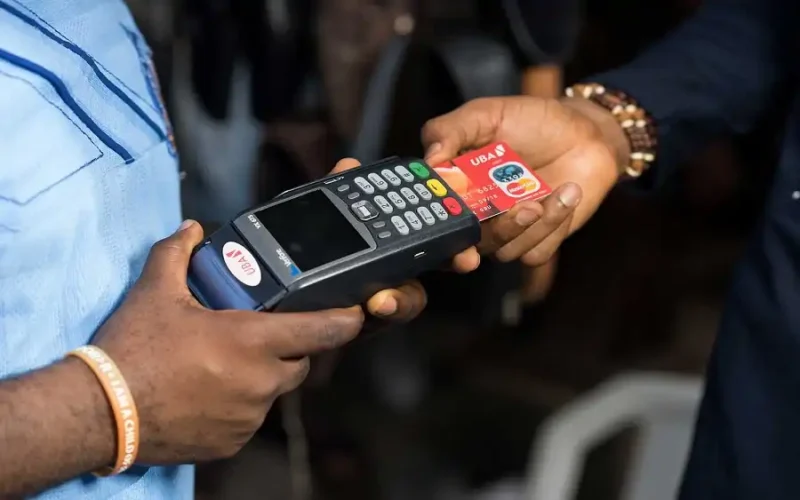Nigeria’s Central Bank has issued a sweeping directive that will fundamentally transform how Point of Sale (PoS) devices operate across the country, requiring mandatory GPS tracking for all terminals in a move designed to combat fraud and strengthen oversight of the nation’s booming digital payments ecosystem.
Immediate Compliance Deadline for Operators
The Central Bank of Nigeria (CBN) circular, released on August 25, 2025, orders all licensed operators—including major players like Moniepoint, OPay, PalmPay, and traditional banks—to geo-tag every PoS terminal within their networks within 60 days.
This aggressive timeline means that millions of PoS devices currently deployed by agents and merchants across Nigeria must be registered with exact GPS coordinates, creating a comprehensive digital map of the country’s payment infrastructure.
Technical Requirements and Infrastructure Overhaul
Under the new regulations, compliance involves several critical technical components:
GPS Integration Mandate
All existing PoS machines must be upgraded with built-in GPS systems, representing a massive hardware overhaul for operators who may have deployed older terminal models without location tracking capabilities.
National Central Switch Connectivity
Every device must connect to Nigeria’s National Central Switch, which will monitor locations through a specialized software development kit (SDK) designed for real-time tracking and verification.
Geographical Restrictions
Merchants will be limited to processing payments within a strict 10-meter radius of their registered business address, effectively creating digital geofences around each terminal’s authorized operating zone.
Scope and Industry Impact
The directive’s scope is unprecedented in Nigeria’s fintech landscape:
- Over 4 million active terminals nationwide require immediate compliance
- All new deployments must be geo-tagged before activation
- Payment Terminal Service Providers (PTSPs) and mobile money operators bear full responsibility for network compliance
- Non-compliant devices will be automatically shut down after the deadline
Strategic Anti-Fraud Measures
The CBN’s initiative directly targets several critical vulnerabilities in Nigeria’s PoS ecosystem:
Cloned Terminal Prevention
GPS tracking will help identify and eliminate “ghost” terminals—cloned devices operating without proper authorization that have been used for fraudulent transactions.
Real-Time Transaction Monitoring
Continuous location verification enables authorities to track suspicious payment patterns and identify potentially fraudulent activities as they occur.
Enhanced Merchant Verification
The 10-meter radius restriction ensures that PoS operators cannot easily relocate devices without proper authorization, reducing opportunities for unauthorized transaction processing.
Market Context and Growth Pressures
Nigeria’s PoS industry has experienced explosive growth that has outpaced regulatory oversight:
- 1.5 million PoS agents as of 2023, creating a ratio of one agent per 80 Nigerians
- 1,600 PoS operators per square kilometer in urban areas, according to recent Bloomberg analysis
- Steady year-over-year growth in terminal deployment across rural and urban markets
This rapid expansion has created regulatory blind spots that fraudulent operators have exploited, prompting the CBN’s decisive intervention.
Previous Regulatory Measures
The geo-tagging mandate represents the latest in a series of CBN initiatives to strengthen PoS oversight:
2024 Routing Requirements
The regulator mandated that PoS transactions be routed through licensed Payment Terminal Service Aggregators (PTSA) to improve tracking and transparency.
CAC Registration Mandate
PoS operators were required to register their devices with the Corporate Affairs Commission, creating formal business records for terminal deployment.
Implementation Timeline and Compliance Challenges
October 20, 2025: CBN begins formal compliance checks, leaving operators with just two months to complete what amounts to the largest hardware upgrade in Nigerian fintech history.
The tight timeline poses significant operational challenges:
- Hardware procurement for GPS-enabled terminals
- Software integration with the National Central Switch
- Agent training on new operational restrictions
- Database management for millions of location records
Industry Implications and Future Outlook
This directive signals the CBN’s commitment to transforming Nigeria’s PoS industry from a loosely regulated sector into a tightly monitored digital infrastructure. The success of this initiative could establish a template for other African central banks looking to strengthen oversight of their digital payment ecosystems.
The geo-tagging requirement also positions Nigeria as a leader in payment system security, potentially attracting international investment in the country’s increasingly sophisticated fintech infrastructure.












